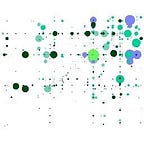Intuition Pumps and Economic Theory: Why Tirole’s Nobel Prize isn’t such a big deal
The philosopher Daniel Dennett coined the term “Intuition Pump” to describe a thought experiment used to illuminate specific aspects of a problem. The phrase“intuition pump” best describes what economic theorists create. In essence, they are engaging in elaborate thought experiments, phrased in terms of mathematics and not, as in philosophy, in words. If theorists adopted this term to describe their work, the public would come to realize how close theorists’ research is to philosophy and not truly scientific. It would also avoid the pitfalls of trusting theorists with designing policy.
I began thinking about the nature of economic theory again after the announcement of Jean Tirole’s “Nobel Prize”. I fully realize that Tirole is one of the leading theorists and produced a ridiculous number of excellent papers that helped guide further research. However, I do not agree with the characterization of his work by the Nobel Committee published. Justin Wolfers, in an article for the NY Times, echoes the committee’s view on Tirole’s work:
… [Tirole’s] research explores the messier reality in which markets are populated by monopolists seeking to exploit their market power, entrepreneurs trying to fool regulators, and regulators whose choices are constrained by imperfect information, political constraints and their own human foibles.
The key phrase here is “messier reality”. I take issue with this statement. Tirole’s work does show how regulation affects markets and what form regulation should take. However, not markets in the real world. The models he builds are intuition pumps. They are not grounded in reality, rather they are thought experiments phrased as mathematical models. By itself the research cannot provide true policy guidance. Why not? The models are not calibrated to real data, and so the conclusion you can make are limited to qualitative statements. Tirole’s work cannot tell the FTC or the DOJ what is the dollar cost of imperfect competition. Or to take Wolfers’ example of entrepeneurs trying to fool regulators, Tirole cannot tell us how many firms are trying to fool regulators and what the cost to the economy is from these behaviours. Only with data analysis can we actually provide real guidance to regulators.
Here is another snippet from the same NY Times article:
As Joshua Gans, a University of Toronto economist, wrote this morning, Mr. Tirole’s “work on regulation has influenced virtually all price and nonprice regulation of firms with market power for two decades.”
If Tirole’s influence is so great, we should be very worried. This means that real policy, real interventions that have real world effects, are based on thought experiments. There is no accountability here either. If his policy recommendations lead to terrible outcomes, Tirole can always turn around and say: “Well, in my thought experiment (model) there were some simplifying assumptions that do not match this market perfectly”. His models have no predictive power and have no quantitative bite. He is a theorist who philosophizes about markets but lacks the analytical framework to actually understand how real markets work. It is a shame that his work is being held up as an example of real-world economics when it has little or nothing to say about real markets.
